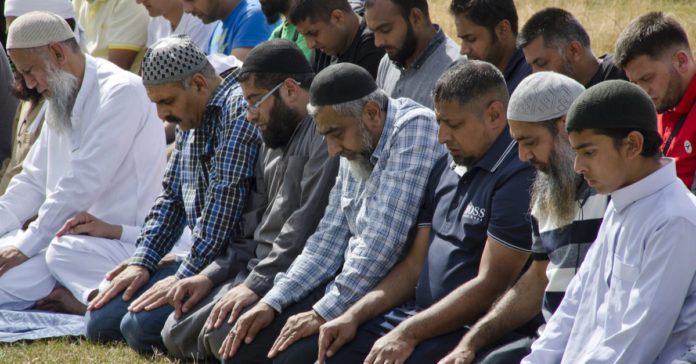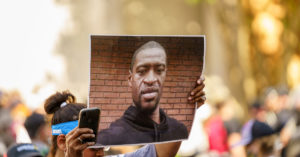
Alim Hasan Islam, Head of Research and Development at Prevent Watch, says the abolishment of the Prevent counter-extremism strategy will not be enough, the authorities will also need to undo the decade’s worth of harm that it has caused.
There is something unsettling about a situation where justice is not par for the course. Or at least, it should be unsettling.
Take, for example, the reaction of U.S. President Joe Biden to the conviction of a former police officer in the killing of George Floyd. He referred to it as a potential “giant step forward in the march toward justice in America.”
The fact that there was apprehension over whether such justice could even be secured speaks volumes about the extent of racism in America today.
But more pertinently, the expectation of mere crumbs of justice in an oppressive situation should not be where we are. Indeed, where a society no longer safeguards and protects the weak from the strong, they risk Allah’s sanctification [Ibn Mājah, 2/1329].
The Muslim community, too, has faced a type of oppression in the way it has been framed as a suspect community. As such, Muslims are often the target of discriminatory and unjust counter-terrorism measures.
Muslims as a ‘suspect community’
Subscribe to our newsletter and stay updated on the latest news and updates from around the Muslim world!
The Prevent policy is but one of those measures.
I am well aware of the impact this policy has had on the community, as well as the journey the Muslim community has undertaken in its response to the policy in the last decade. Six years ago, when Prevent Watch was established to support individuals impacted by Prevent, I was the first ever employee and caseworker.
My first cases involved teachers who had been subjected to the Trojan Horse scandal, a fake plot to “Islamicise” schools in Birmingham. The careers and reputations of these teachers were ruined.

Mosques were also among the first to contact me, to relay their experience of being contacted by Prevent officers who were trying to shut down certain events or inhibit certain Muslim speakers from speaking. Ironically, targeted speakers were quite often those who voiced their opposition to Prevent’s spying on Muslim communities.
Of course, when disruptive measures like this are taken against any community, there is a chilling effect that takes place whereby those impacted become isolated.
In my experience, many of my clients impacted by Prevent complained about being shut out of their social networks: shunned by friends and family who deemed them a liability by association, for they too could find themselves on Prevent’s radar. This meant that clients were left feeling alone, betrayed by those closest to them, unable to reach out to them in their moment of need.
The atmosphere of fear was suffocating. And the fact that this was becoming a pattern -client after client – was a sign that this suffocating atmosphere, this injustice, was slowly being accepted as the norm.
Changing attitudes towards Prevent
However, as I mined through the 600 cases that we have worked on in my role as Head of Research at Prevent Watch, what struck me the most is just how much the Muslim community’s reaction to Prevent has changed over the years.
Six years on, as more and more cases have been published about the pernicious nature of Prevent, there has been a groundswell of public opinion shifting against Prevent. Where there was previously indifference, there is now condemnation of the policy.

There have been a number of robust statements in support of the boycott of Prevent by mosques, community groups and non-governmental organisations, as well as imams, scholars and Islamic activists.
The work carried out by Prevent Watch and the wider community has contributed to this environment in which bodies like the UN, academic institutions and teachers unions have condemned the policy.
While the work to abolish Prevent is still not over, it is heartening for me to witness the growing strength in the attitude of clients towards Prevent. We are still getting new cases on a weekly basis, but those voices are assertive, more defiant in the face of the discrimination they are facing, and more willing to expose the injustices produced by Prevent by speaking about it publicly.
Settling for crumbs?
But is condemnation of an inherently Islamophobic policy sufficient? Are we still just settling for crumbs?
The truth is that even if Prevent was abolished tomorrow, as much as it would be a welcome victory, it could never amount to justice for those who have been continually impacted by the policy.
As many ulamā have articulated, injustice is to place something in an improper place. Those children who have been traumatised by their interactions with Prevent mechanisms; those parents who have had to endure witnessing their children suffering; those Muslims who had their income impacted; and those Muslims who have been defamed through the vacuous label of “extremism.” All would need to have their conditions put back in their “proper place” for justice to be truly realised.
It was interesting to note that upon the conviction being made public, LaTonya Floyd, George Floyd’s sister, said: “My brother got justice, and that’s very rare.”
I hope there are voices to remind people about the fear and suspicion-based norm that Prevent has fostered. That the removal of Prevent is a crumb that will not suffice. That if Prevent is abolished, there would need to be a firm commitment to undo the decade’s worth of harm that it has caused.
The road to justice may be a long one. However, it is through perseverance, guarding the believers and being mindful of our dīn that we as Muslims are to find success. As Allah advises the believers:
“O you who have believed, persevere and endure and remain stationed and fear Allāh that you may be successful.” [Qur’ān, 3:200]
Amīn.

















